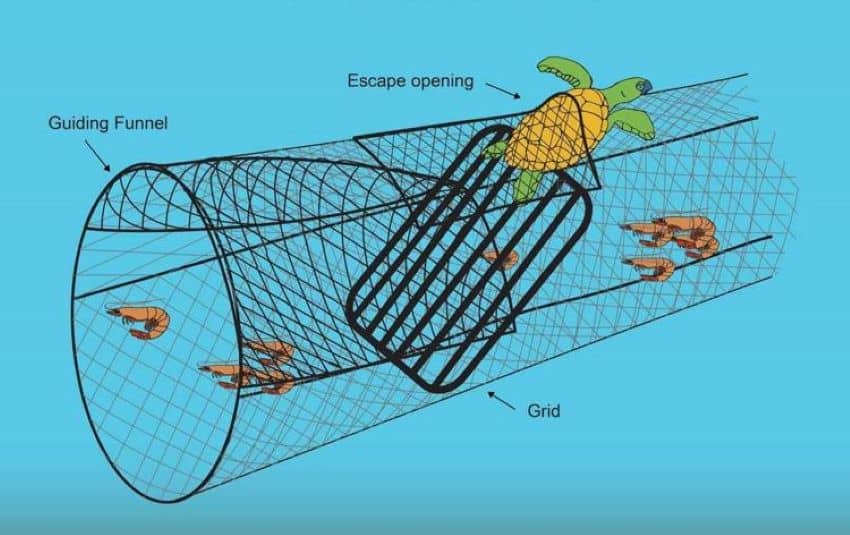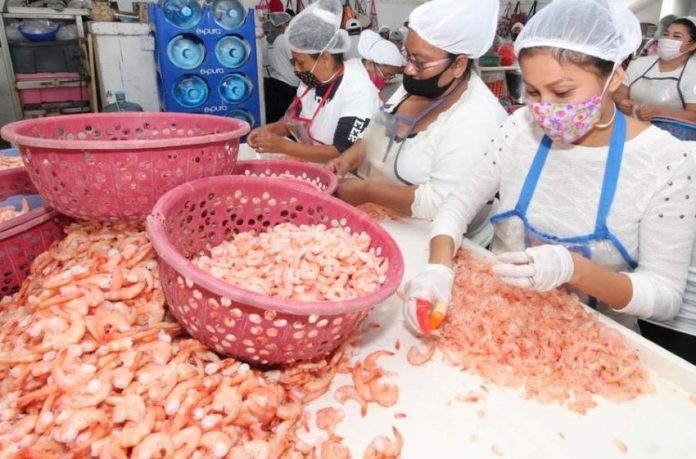The United States has suspended Mexico’s certification to export wild-caught shrimp to the U.S. due to inadequate sea turtle protection measures, a move that could cost the industry about US $300 million annually.
The State Department said it suspended Mexico’s certification because its sea turtle protection program is no longer comparable to that of the United States.
Mexico’s Agriculture Ministry (Sader) said in a statement that United States authorities conducted verification visits to fishing ports in several Mexican states between 2019 and 2021 and detected “deficiencies” in the use of turtle excluder devices (TEDs) on 106 shrimp nets.
Among the ports visited were Mazatlán, Sinaloa; Puerto Chiapas, Chiapas; Puerto Peñasco, Sonora; Tampico, Tamaulipas; Lerma, Campeche; and Puerto Juárez, Quintana Roo.
After the current federal government took office in December 2018, the National Aquaculture and Fisheries Commission (Conapesca) disbanded a group of officials that provided training to fishing crews on the correct use of TEDs.

In light of the ban, Sader said that Conapesca, the environmental protection agency Profepa and the Ministry of the Navy are carrying out preventative and corrective measures with a view to recovering certification as soon as possible. One measure is the provision of training to shrimp fishermen to ensure that sea turtles are not taken in by shrimp trawler nets.
The agriculture ministry said that a “more aggressive program of inspection and oversight” will be established to ensure that shrimp fishing in Mexico complies with United States requirements. The ministry added that U.S. authorities have demonstrated a willingness to reinstate export certification as soon as possible. For that to occur, Mexico will have to request a verification visit at the start of the new shrimping season in September, according to Sader.
“… The ports that will be inspected as a priority are Mazatlán, Puerto Peñasco, Tampico and Campeche, according to preliminary information from the United States government,” the ministry said.
It also said it will be essential to present to United States authorities by August documental evidence of the actions carried out by the Mexican government to ensure that sea turtles are not caught in nets.
Sader said that “during the time that the certification suspension lasts, which coincides with the closed season for this species, dragnet shrimp cannot be exported [to the United States] for any reason.”
If the suspension were to remain in effect for a year, Mexico — the world’s seventh-largest shrimp producer — could lose export revenue of about US $300 million.
Total shrimp exports to the United States in 2019 were 30,000 tonnes, according to the ministry.
Humberto Becerra Batista, head of the National Fishing Industry Chamber, said the United States’ suspension was regrettable as the shrimp industry provides employment for thousands of people and is a large foreign currency earner. He also said the shrimp industry is committed to sustainability and the protection of sea turtles, six of seven species of which are considered endangered or threatened.
Mainly located in Sinaloa, Sonora, Tamaulipas, Nayarit and Baja California, Mexico’s shrimp fishermen send about 80% of their exports to the United States, with smaller quantities going to countries such as China, Japan, Malaysia, Singapore and France.
